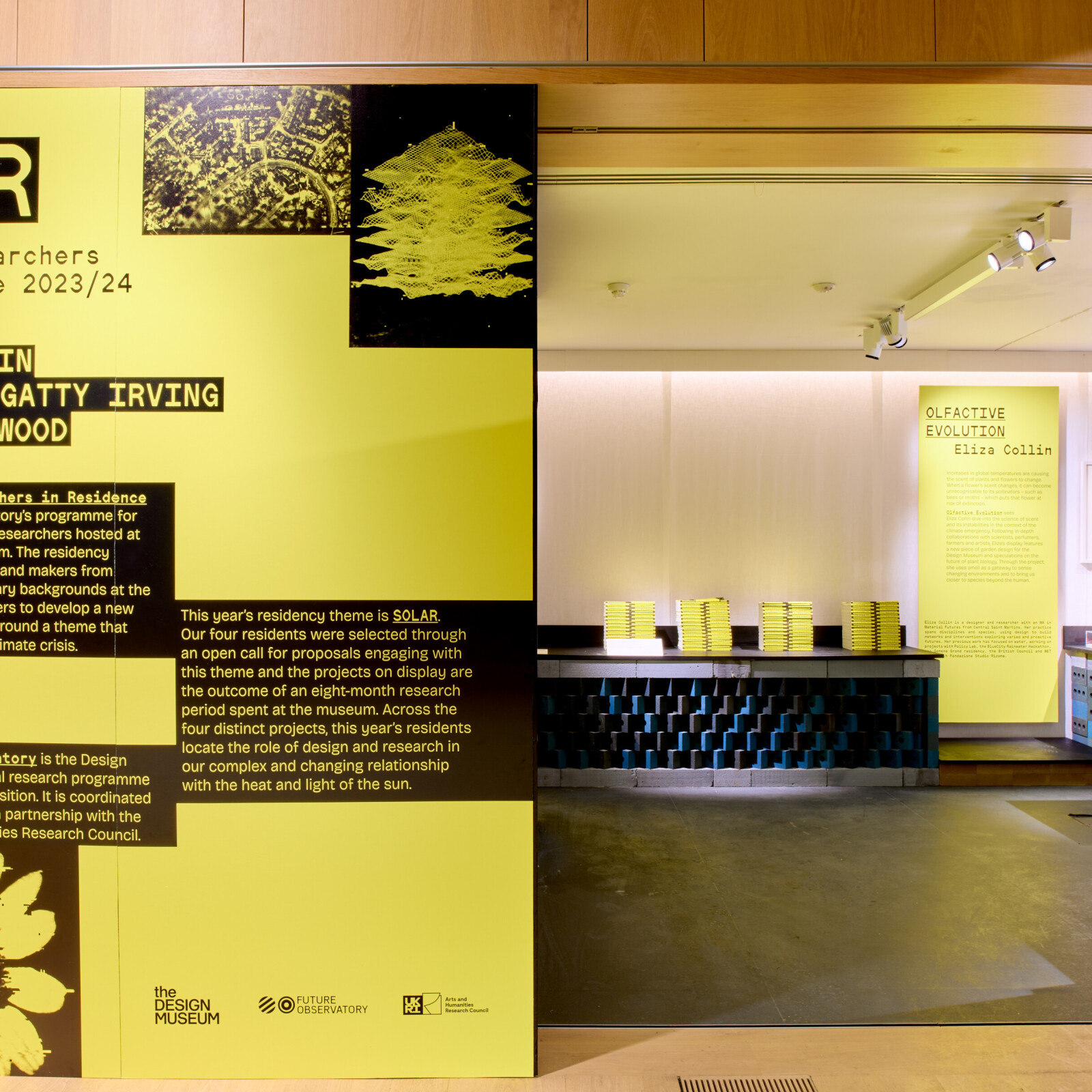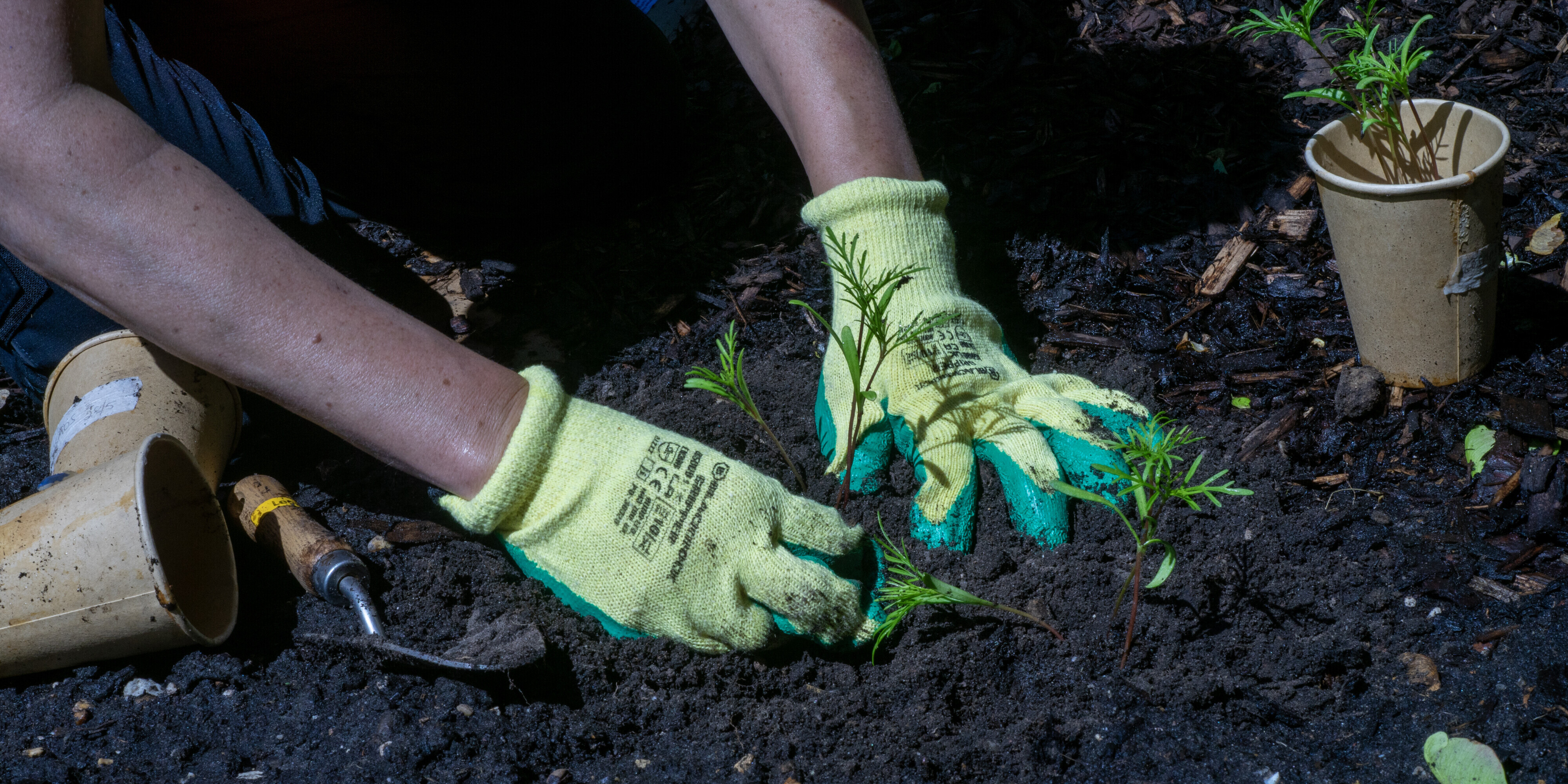
| Location | The Dame Sylvia Crowe Garden, the Design Museum |
| Opening | 21 June 2024 |
Hybridising Scentscapes is a piece of botanical design research currently unfolding in the Design Museum's Dame Sylvia Crowe Garden. It continues work undertaken by Eliza Collin during her residency at the Design Museum/Future Observatory in 2023/24.
Whilst investigating how the scent of plants around the world are changing due to climate change, Eliza identified research exploring how some members of the Brassicaseae family’s scent are affected by pollution whilst others remain unaffected. To explore the potential for these different species of Brassicaseae to hybridise and become more resilient to changing climates, Collin and her collaborators Aterraterra have planted a variety of Brassicaeseae and other seeds to be grown and analysed over three years.
Some of the plants in the plot will change their scent when they are exposed to London's air pollution. When a plant changes its scent, this can have a negative impact on its relationship with pollinators and puts it at risk of extinction. Other plants in the plot do not change their scent under these conditions. By planting the different flowers together, this plot has been designed to encourage hybridisation. This is a process where two different species mix to produce a new hybrid plant which may be more resilient to changing climates.
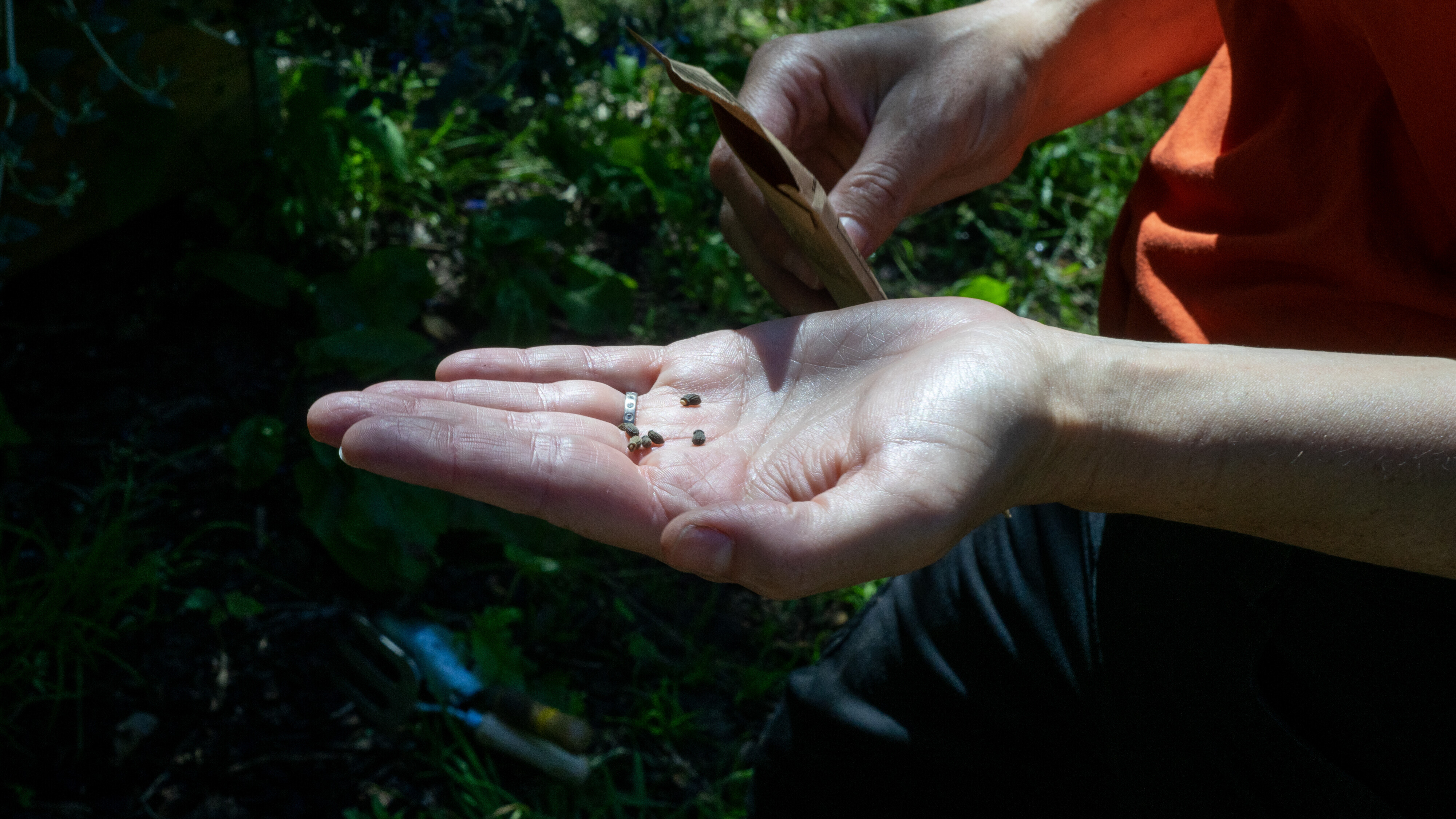
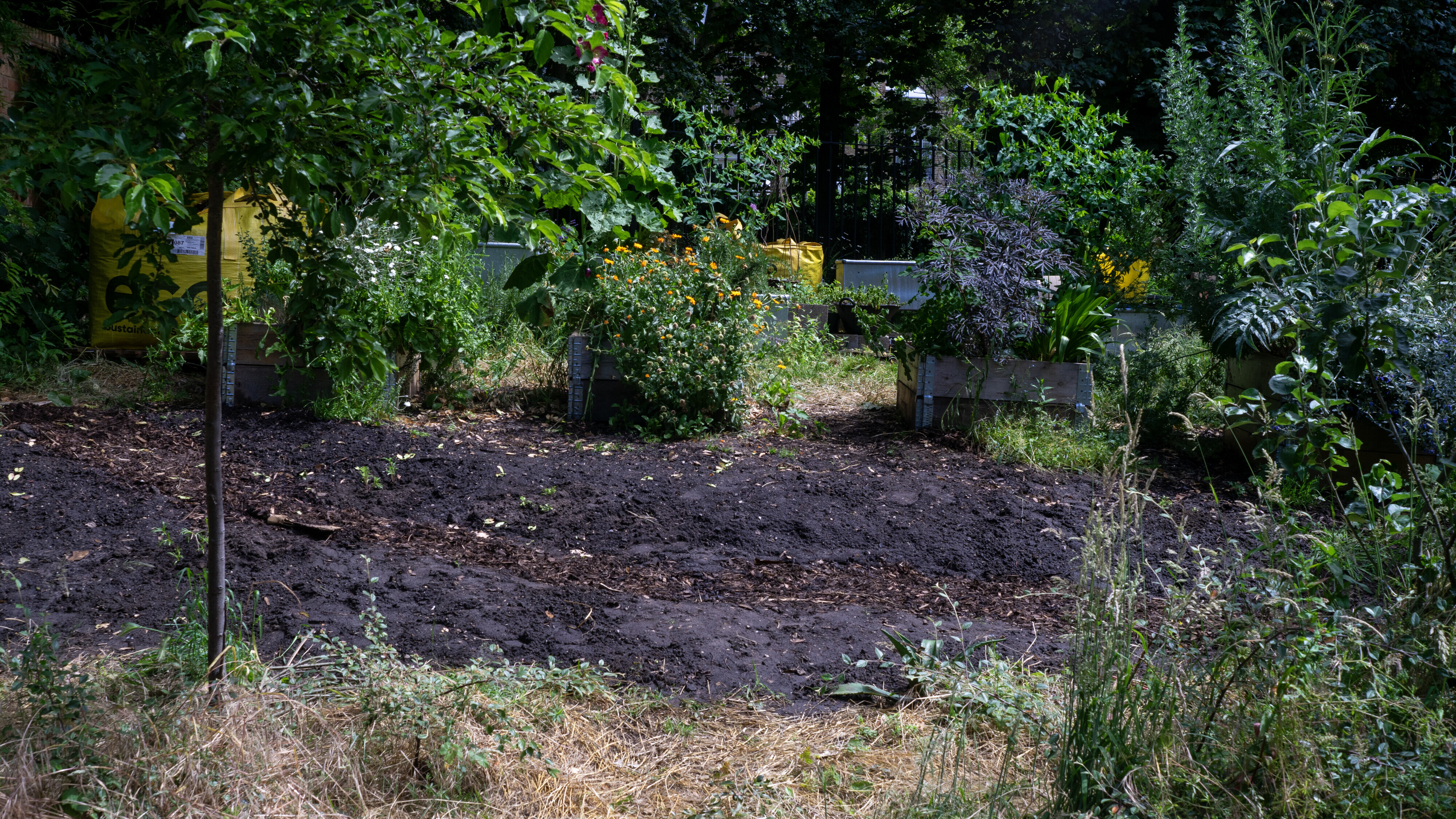
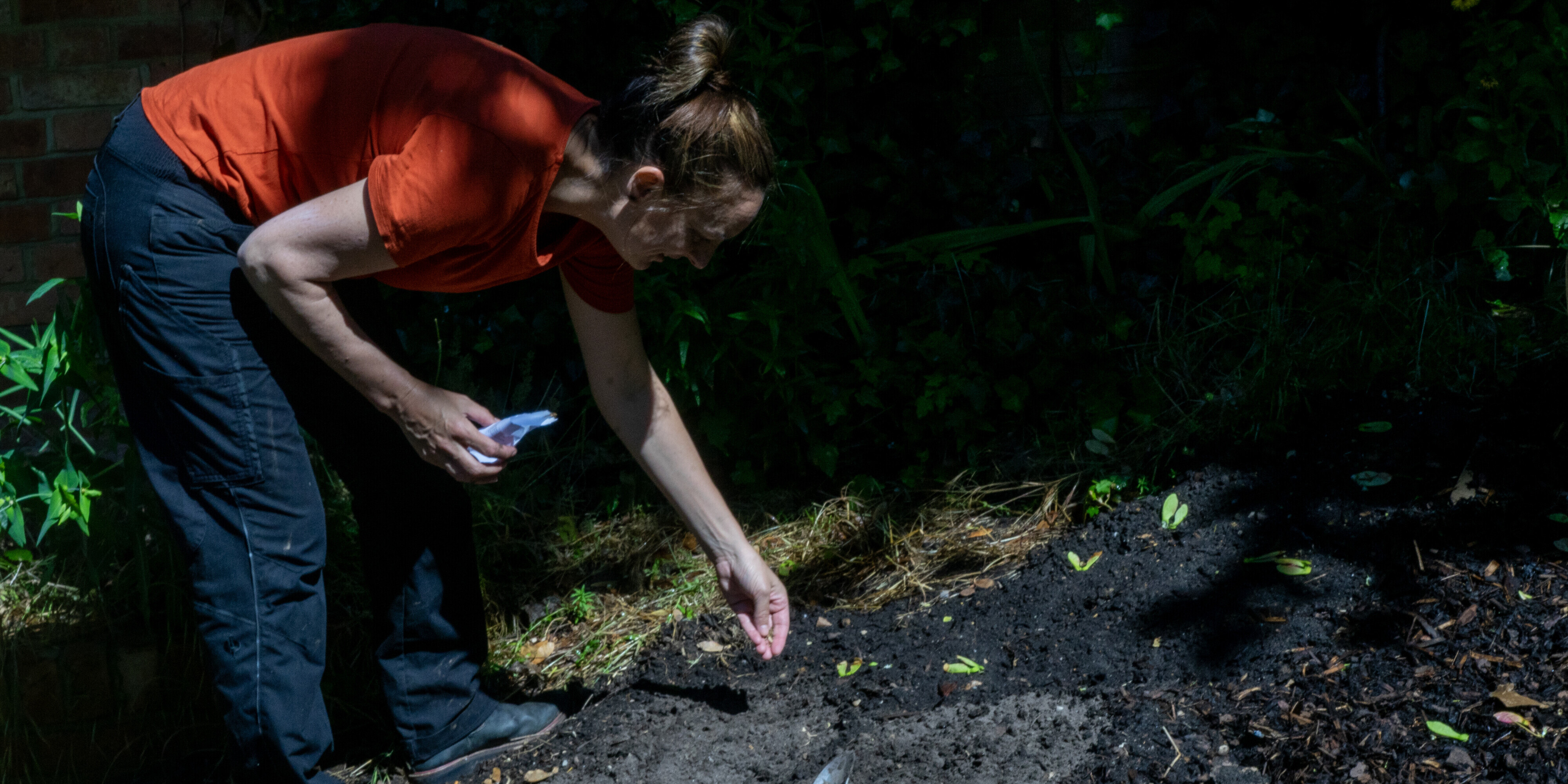
The plot was planted in June 2024 and is being monitored by Collin and Design Museum volunteers as part of the Growing Together project.
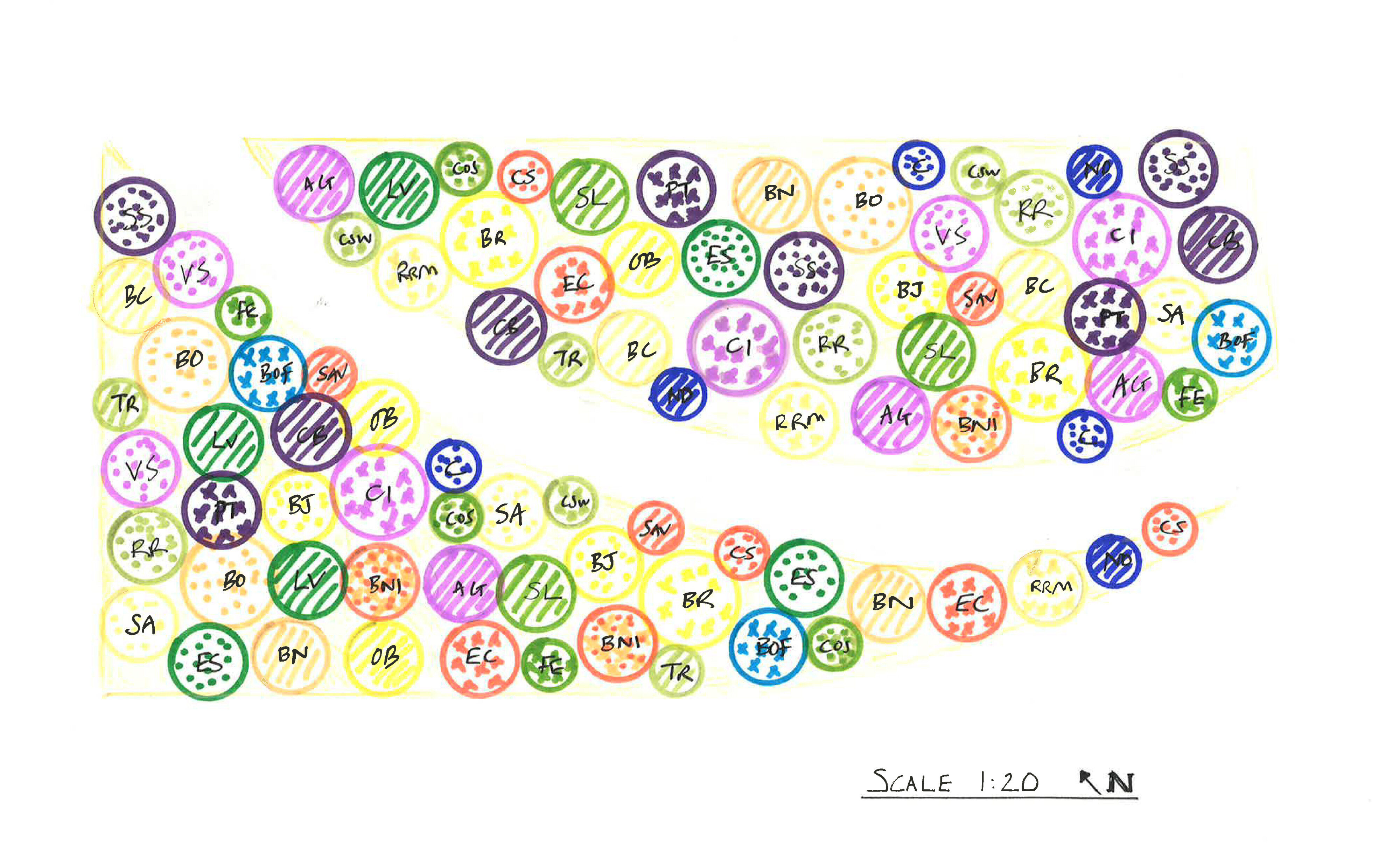
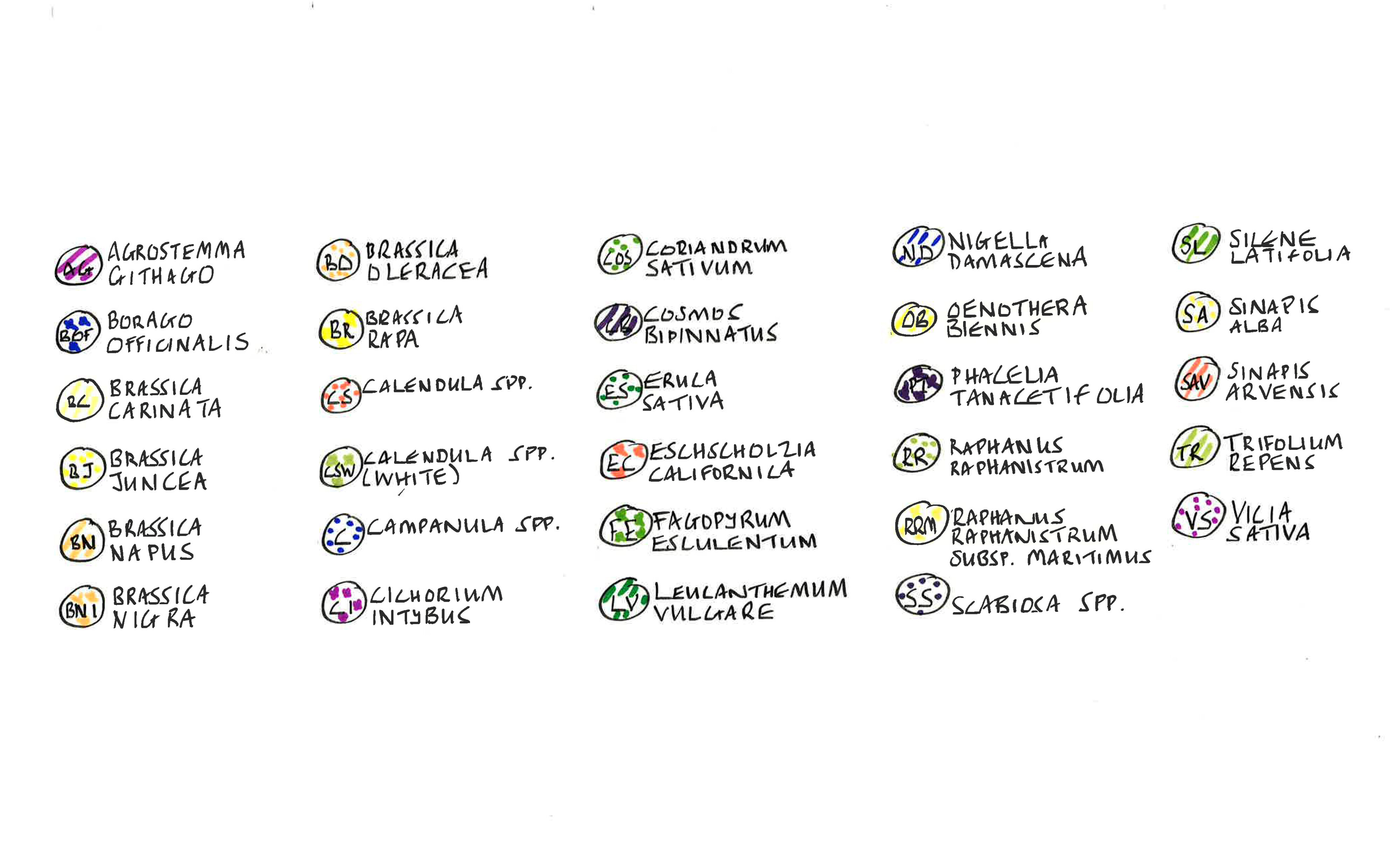
| Brassicaceae seed list: | Other: |
| 1. Sinapis arvensis | 1. Agrostemma githago |
| 2. Brassica rapa | 2. Borago officinalis |
| 3. Brassica juncea (ATT) | 3. Calendula spp. |
| 4. brassica oleracea (ATT) | 4. Campanula |
| 5. Brassica napus | 5. Cichorium intybus |
| 6. Raphanus raphanistrum | 6. Coriandrum sativum |
| 7. Raphanus raphanistrum subspecies maritimus | 7. Cosmos bipinnatus |
| 8. Brassica carinata | 8. Eschscholzia californica |
| 9. Brassica nigra | 9. Fagopyrum esculentum |
| 10. Sinapis alba | 10. Leucanthemum vulgare |
| 11. Eruca sativa | 11. Monarda spp |
| 12. Nigella spp. | |
| 13. Oenothera biennis | |
| 14. Phacelia tanacetifolia | |
| 15. Scabiosa spp. | |
| 16. Silene latifolia | |
| 17. Trifolium pratense | |
| 18. Trifolium repens | |
| 19. Vicia sativa |
